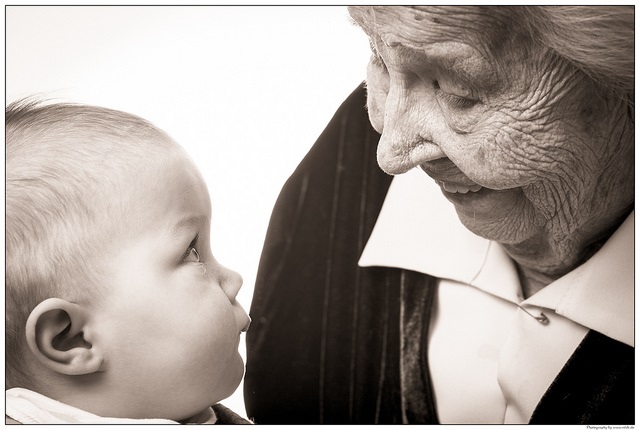What Stage of Life are You In?
By: Other | March 4, 2017

Written by Jennifer Wendt, Ph.D.
Our lifespan is comprised of a progression of stages during which we face new dilemmas and experience new accomplishments. From early childhood thru the retirement years we all endure similar phases of life: childhood, adolescence and various stages in adulthood. We also tend to connect with others who are living in the same stage of life as we are because there is commonality in struggles, daily life events and goals.
When we get lost in the details of our daily life or the lives of our children or loved ones, it can be helpful to pull back and look at the big picture. It can also be very helpful to place a developmental framework around current life experiences. When you are wondering why your teenager can’t survive without texting his or her friends, or your four year old won’t stop asking “why” questions or why you are feeling the desire to go back to college to pursue a more meaningful career, an understanding of which stage of development a person is in can be comforting and insightful.
Erik Erikson established eight stages of psychosocial development across the lifespan. These 8 stages are a helpful tool in creating a framework for development and understanding the various goals we strive for at specific points in our lives Erikson described each stage as a phase during which a person develops a part of his identity and a stronger sense of self.
Eriksons’s Stages of Psychosocial Development Through the Lifespan
Basic Trust vs. Mistrust: Birth to 1yr
In this first stage an infant gains trust in their primary caregiver versus a world they are uncertain about. A caregiver can provide stable and consistent care to help the infant develop ability to trust others and to trust in themselves.
Autonomy vs. Shame and Doubt: 2 – 3yr
During this stage a toddler is learning that he can do many things on his or her own and is gaining independence. He or she is learning to walk away from a parent, find a toy, get dressed, and make food choices. They begin taking pride in new found abilities. It is important for a parent to provide encouragement for attempting new abilities while creating a learning environment that is accepting of failure and mistakes.
Initiative vs. Guilt: 4 – 5yr
This is a stage of rapid growth and learning. The child begins to take initiative in the environment, learning to participate purposefully. Skills such as learning how to make up games, initiate play and cooperate with others begin to develop. Children in this stage are also very inquisitive, asking many questions. Parents can support this stage of development by allowing children to explore and be inquisitive without feeling embarrassed, controlled or criticized.
Industry vs. Inferiority: 6 – 12yr
Elementary school aged children in this stage are developing competence. There is a tremendous amount of learning during this stage. Children are beginning to learn to read and write, complete tasks, try new skills and discover interests. They are learning to listen to teachers, rise up to expectations of others and become more invested in their peer relationships. Children are learning to seek approval from others by their competencies. They take pride in their accomplishments. Adults can help support children in this stage by acknowledging and encouraging a child’s initiative.
Identity vs. Role Confusion: 13 – 19yr
The teenage years are important for developing one’s identity. The adolescent begins to integrate interests, beliefs, skills and relationships into the identity of the whole self. There is a transition of taking what was learned as a child (morals, rules, competencies, etc.) and developing ethics, philosophies and ideologies for adulthood. Ideas begin to form about future careers, relationships, family, etc. A sense of independence, along with personal efficacy, strengthens. The adolescent is establishing an identity, a sense of how he or she fits into society.
Intimacy vs. Isolation: 20 – 40yr
This stage lasts for various amounts of years as the young adult engages in relationships with others; learning to care for others outside of the self. Relationships support the development of learning to care for others, intimacy and compromise. Successful growth in this stage can result in happiness, safety, support as well as commitment within a relationship.
Generativity vs. Stagnation: 40 – 64yr
This stage in middle adulthood is focused on establishing careers and meaning in life. Adults in this developmental phase are making their lives significant. They are giving back to society by being productive at work, raising children and participating in the community.
Ego Integrity vs. Despair: 65yr to Death
The ultimate stage in adulthood is focused on reviewing one’s life with hopefulness that one will feel successful, satisfied. There is a continued effort to contribute to family and society while experiencing a sense of closure and completeness.
If you are trying to gain perspective about a certain phase of life, Erikson’s stages of psychosocial development can provide a framework of understanding. As this article only reviews a light summary of a developmental framework, a psychologist can assist you in learning more about your stage of life; providing a more in-depth understanding of what you feel the purpose of your life is at this time.
Image: Michael Lamberty on flickr and reproduced under Creative Commons 2.0



